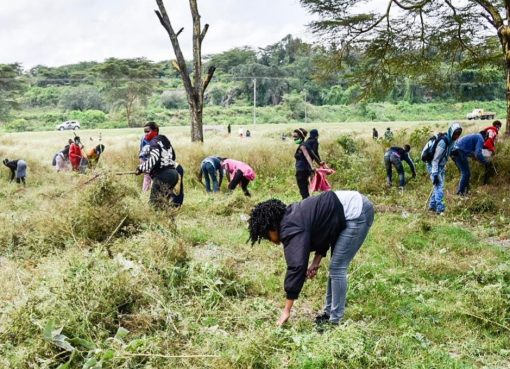

Estate coffee farmers are now eligible to benefit from the Coffee Cherry Fund, but only if they deliver their crop to the New Kenya Planters Cooperative Union (KPCU).
However, according to Julius Kimathi, the Technical Advisor to the Agriculture Cabinet Secretary, Peter Munya, such farmers must deliver at least half of their crop to the KPCU in-order to qualify for the benefit.
Kimathi said the delivered produce would then be received, weighed, milled and graded in the presence of the respective farmer or his/her appointed agent for the purposes of transparency and accountability.
“But the value of the crop delivered to our facility must be commensurate with more than half of the fund being sought for security purposes for these estate farmers,” Kimathi explained.
He further assured both the estate and cooperative society farmers that they were free to market their milled crop wherever they wished or trust the KPCU to do it on their behalf.
“As a government parastatal we are not here to make profit but to offer and promote a forum to make farmers realize their full economic potential from their crop,” said the technical advisor.
The cadre of farmers had through their representative Kariuki Albert wondered why the New KPCU was discriminating against them, yet they were ready to comply with all the laid down requirements in order to qualify from the Fund.
“As Estate farmers from this county we feel left out and forced to deliver our coffee to private coffee mills outside the area, which makes us incur heavy losses since we have neither representation in such facilities nor can we benefit from cheap crop advances,” said Kariuki.
However, speaking at the Sagana KPCU mills in Kirinyaga County on Saturday, Kimathi also disclosed the new KPCU was now just like any of the 50 government parastatals within the State Department for Agriculture.
He said the parastatal was ready to compete with other marketers of the product, while at the same time maintaining the highest standards in milling and warehousing of the commodity.
The advisor who was accompanied by the Fund Chairman, Henry Kinyua and the Acting Chief Executive Officer Angeline Ndambuki urged farmers to start delivering their crop to the Sagana facility without any fear or doubts due to the prevailing transparency that has been put in place.
He told local coffee cooperative society leaders that they should start making arrangements on how their farmers should access money from the Fund since some have already delivered their produce.
An agent from the Yala Fertilizer manufacturing company which is a major coffee farming collaborator Stephen Mburu said some 130 metric tons of the products were being offloaded at the port of Mombasa and would be distributed to the farmers in the next two weeks.
“The fertilizer we have imported will benefit 73,000 coffee farmers across the country, while the respective coffee cooperative societies will be responsible for distribution to the individual farmer,” he said.
The Kirinyaga West Sub-County Deputy County Commissioner, Moses Ivuto assured the New KPCU management that the government would continue to provide the much required security to safeguard farmers from losing their crop to thieves.
“During the just ended coffee picking season, not a single bean was stolen within my jurisdiction and this will be maintained at all costs to save our farmers from unscrupulous millers who collude with criminals to steal the crop,” he said.
The coffee bean has become one of the most valuable commodities due to declined production and the emergence of many private millers all seeking to have a share.
By Irungu Mwangi





